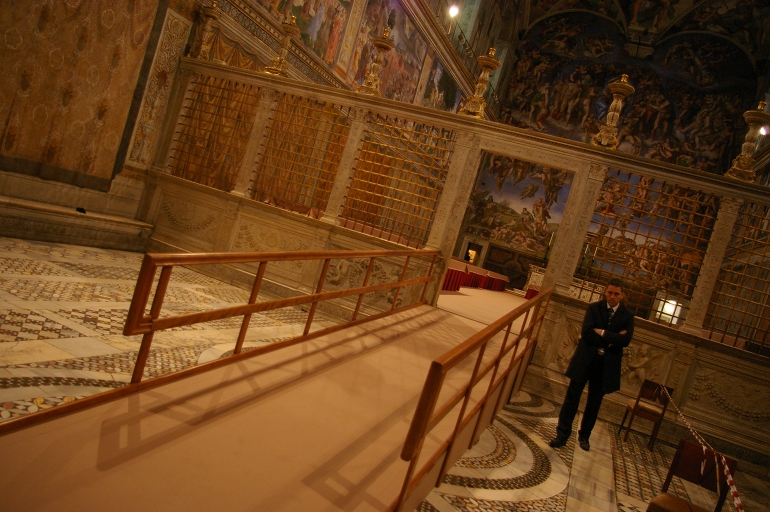
The Sistine Chapel, where the cardinal electors will vote for the next Roman pontiff, has been specially altered with a new accessible floor for the aging prelates. Here you see a ramp, leading to the cardinals' seating area. (NCR photo/Joshua J. McElwee)
Recognizing the rising levels of curiosity about how the next leader of the world's 1.2 billion Roman Catholics will be chosen, the Vatican on Saturday opened up the Sistine Chapel to journalists, allowing us to peek into a rite both ancient and modern.
The chapel, known for its iconic paintings by Michelangelo, is where the church's cardinals will begin gathering in secret Tuesday afternoon to cast ballots for the next pontiff.
Vatican workers have been preparing the chapel for the vote for days, putting in a false floor to allow the more elderly cardinals easy accessibility, bringing in the necessary tables and chairs, covering the windows with a special film to prevent people from looking in, and adding electronic jamming equipment.
Each day, the cardinals will access their seating area from a ramp. After casting their first ballots Tuesday afternoon, they will cast two ballots each morning and afternoon until 77 cardinals, or two-thirds of the 115 voting cardinals, agree on the next pope.
After each vote, the cardinals' ballots will be burned in a special furnace that will color the resulting smoke black for no consensus or white for when a new pope has been selected.
As soon as the man chosen accepts the role, he immediately becomes the 266th successor to St. Peter, apostle of Jesus the Nazorean and first bishop of Rome. The new pope will then choose a name, be fitted with vestments, and make his way to greet the waiting crowd in St. Peter's Square.
